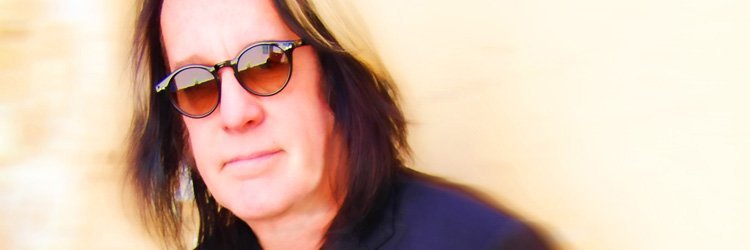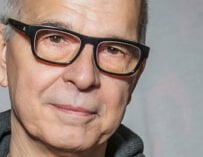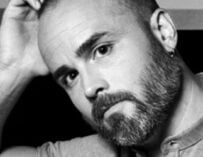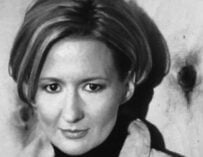
Todd: “I was looking for people to do what they were comfortable with and challenge me to figure out a way to make it all fit together”
With an album of collaborations on the way, we catch up with the iconic recording artist, producer and musical innovator
Any attempt to succinctly summarise the career of Todd Rundgren is something of a gross injustice. Known equally for his own output, in particular the seminal 1972 album Something/Anything?, as for his production work on records such as Meat Loaf’s Bat Out Of Hell and XTC’s Skylarking, his adventures in sound run far deeper than the catalogue he’s renowned for. Rundgren is an experimental pioneer who has advocated advancements in technology for much of his life, and that’s only scratching the surface.
For his latest project, White Knight, Rundgren has teamed up with a vast array of collaborators, including Daryl Hall, Robyn, Trent Reznor and Joe Walsh. It’s an album that is also notable for the variety of styles it contains, ranging from space rock to disco soul with some rhythmic funk thrown into the mix for good measure. It’s an accessible and riveting record that we’d love to find out a little more about.
With that in mind, we gave Todd a call in his Kauai home in order to learn some more about how it all came together…
It’s such an eclectic album, where did the idea come from?
“I wasn’t actually planning a record when I was approached by Cleopatra about doing a new album. I didn’t really have a concept floating around in my head but I was starting to get the idea that I had been a little bit too isolated in my recent record making, because I live so far away from everybody I was pretty much doing it all myself. That, in and of itself, was kind of a rut that I should get myself out of, so I thought ‘why don’t I make an extra effort to collaborate with other artists?’ That’ll serve a couple of purposes. One, it’ll give me a broader range of musical ideas to work with and it will also benefit both me and my collaborators as we’ll get to share audiences. That was the basic idea and then I set out to figure out who wanted to help me. I had a pretty good list of maybe two dozen people but as time goes on not everybody steps up to participate.”
How many of those people had you worked with before?
“It was about half and half. I’ve worked with quite a few different people and I knew what to expect from most of them. The rest were ones that I possibly had some acquaintance with or had never met before.”
Did you co-write together or write with them in mind?
“It was kind of bi-directional. In some cases people sent me tracks, like Joe Satriani did. Moe Berg and Joe Walsh sent me things where they had already laid down the instrumental part but they didn’t have actual lyrics and song elements. Then, if it was a singer that I was working with, I would have to pretty much write to them and in some cases it was almost the same as writing for me. For instance, the song that I did with Daryl [Hall], he and I have such similar ranges and influences that it’s pretty much an easy fit.”
Was it different then when writing for someone like Bettye LaVette?
“I think Bettye went the furthest out of her comfort zone with this particular project. From my experience of Bettye, she has a whole other kind of delivery for the most part and I sort of challenged her on the song that I gave her. I didn’t force her to do anything but sent her the demo and she agreed to give it a try and it turned out just what I was looking for.”
Did you spend time with people in recording studios or was it all done remotely?
“Everything was pretty much done remotely, there was only one instance where I was in the same room with my collaborator and that was with Donald Fagen, as he happened to be out here on the island at the time. Everyone else, we did it via Dropbox and Hightail and that kind of thing.”
Do you think that had an effect on the end result?
“Well if you had something very specific in mind you’re probably always better to be present with people when they’re making their contributions. I realised that maybe that was not what I was looking for this time. I was looking for people to do what they were comfortable with and challenge me to figure out a way to make it all fit together. Normally I might be in the studio to say ‘could you sing it this way?’ or ‘would you do this?’ and I think it was better that I wasn’t doing that, I was just letting people do it the way that they felt like doing it.”

Todd Rundgren: “When I actually get down to the writing part it’s almost like automatic writing and my hand just starts doing it”
It must have been a challenge to work out the track order. How did you piece it all together?
“The label wanted to release an LP at the same time as the CD came out. The LP only has 12 songs on it, so it was coming up first with that order. It was partly what I had finished at the time that wound up on the LP, the first dozen songs, so then I had to work out how to insert another three songs into the running order after that. I’m not exactly sure how I made those decisions but a lot of it was fairly simple, trying not to run two ballads into each other, that’s a little bit too much. Trying to keep the tempo at a variety of paces rather than getting into one groove. But also with the awareness that nowadays a lot of people are not going to experience it in that order, as so many people are listening via downloads. There’s one song that has been released already and there will be another two or three that get released before the album comes out and so that may affect the way you experience it.
“The opening song on the record I knew that I wanted it to be the opening song, I knew that was the effect that I wanted but after that I wasn’t particularly sure. But again, this is a different sort of process for me than what I usually do and in some cases I might be thinking of a running order long before I’ve completed the record because I have a pretty good overview of where it’s going to go. When you’re collaborating with other people stuff comes in at odd times and you don’t actually know everything that’s going to be on the final product. The last week of two was a mad scramble, so that had a different affect to if I was writing or performing it all myself.”
It sounds like when we’re compiling our magazine!
“Yeah, you’ve got to make space for things and move them around. It’s a different process.”
Were there any big surprises?
“Well the response that you get from people is wildly varied. I have collaborators who just never delivered in time to make the record and then again there was the embarrassment of riches that I got from Trent Reznor. Almost immediately after I spoke to him he sent me an album’s worth of musical ideas. Because he spends a lot of time now doing soundtracks for movie and TV he keeps a big library of ideas and he just sent me about a dozen of those. The challenge was then figuring out which one I wanted to focus on. So that was one end of the spectrum, the other end was some things that I was hoping to get that I may yet get but I don’t have in hand right now.”
Do you find that you have to carve out specific time for writing these days?
“A lot of the work goes on in my head. It’s not like if I spend more time in the studio making sounds it would alter the final product that much. I do spend a fair amount of time figuring out what things are supposed to sound like but the overall idea of the song is kind of stewing in my head the entire time, so I make a lot of progress when I am in the studio. I also have the advantage now of being able to carry basic compositional tools with me on my device and so I don’t have to be in the environment that I’ve set up for myself to make music in, I can make it almost anywhere.”
It’s so much easier to keep track of ideas these days, does that make a moot point of the notion that if you can’t recall something it can’t have been very good in the first place?
“I can still remember the melodies, I don’t need to necessarily sing them into my iPad. I can pretty much keep the ideas in my head. When I say I’m working in my head, it’s literally going on mostly in my head. Maybe if I have the little germ of an idea and I don’t want to forget that I will make the time to capture it, but often anything that happens after that, any elaboration on it, is as much a mental process as much as one in which I’m actually creating sounds.”
Of all the technological advances since you’ve been in the music industry, which do you think has had the most profound effect on your writing and recording?
“Well it goes back to Wizard A True Star where I decided that I just needed a studio of my own so that I could be in it for as long as I wanted, whenever I wanted, and do anything that I wanted with the stuff that was in it. That just changed the way that I wrote profoundly, because I no longer had to sit at the piano and work things out until the studio was open to me. I could work them out in the studio and take them directly to tape, so the studio became a feedback element and a compositional process. I could lay things down and decide ‘yeah that works’ or decide ‘no that doesn’t work’ and interactively come up with the musical aspect of it and that changed the way that I wrote in general.
“I don’t finish the lyrics to the song until I’ve done everything else, until I’ve recorded the entire background and bed of it. Then I sit down and in about half an hour I write and sing the actual song. For the most part I have a working title and if I think the working title reflects accurately the feel of the song and the lyric that I want then again it’s part of that process of having it stew in my head for a long time and penetrate my subconscious, so that when I actually get down to the writing part it’s almost like automatic writing and my hand just starts doing it and I don’t have to think that much about it – except going to the rhyming dictionary every once in a while.”

Todd Rundgren: “Once I get fired up to do it, I’m doing it all at once”
So these ideas are just percolating away in your head?
“Pretty much, it’s not that I couldn’t do it another way but once I get focussed on the idea of what the song is supposed to be about, I want to stay in that place and refine that message until it’s finished. It’s hard for me to come in and do a little bit of it and then come back to it later and do a little bit more. It’s too hard to get fired up for that. Once I get fired up to do it, I’m doing it all at once!”
Bringing it back to this album, were any of the songs particularly fun to make?
“Since it wasn’t done in the traditional manner, in other words me and the other artists being in the same room together, we don’t have a lot of anecdotes about what went on like you usually would, but the reaction that some of the artists had after I messed with their music was interesting. Trent Reznor is a really easy guy to work with, I’ve done a remix for him before and he’s got particular ideas but he also gives you your space. But then, on the other hand, the song with Joe Walsh was so unlike anything he had in mind that, while he was pleased with it, he thought I was crazy. He expected it to go to a completely other place whereas I didn’t really have any pre-conceived notions about what the song was about and where it should go. I decided that I really wanted to focus on the little guitar thing that he was doing so I removed half of what he had put on there just to expose that more.”
Was he happy with it?
“In the end he was happy with it but it was just like nothing he ever would have thought of doing and that’s the fun part of it. It’s about having an understanding with the other artist. I try to give them everything they need to work with and the space to do it. I demo all of the songs before I give it to them, I don’t just send them a lyric sheet and a piano melody, I actually sing the songs in a way that I think is apropos to the lyrics and in most cases they adopt a lot of that phrasing. It’s as if I’m there, but I’m not nagging them to do it.”
What do you think the average Todd Rundgren fan is going to make of the album?
“I think that they’ll find it comforting that I haven’t got further out there with some of the more experimental and dance-orientated records that I have done recently. It’s still got elements of that, usually when I absorb some sort of influence it remains there in some vestigial manner, but there are the alliances with people like Daryl who they’re all very familiar with and I think they’ll enjoy that aspect of it. I’m hoping they’re open to all the different interpretations.”
Lastly, what should people expect from the tour?
“Well we’ve got a pretty high-production show as I am want to do on occasion, with a high emphasis on video and a stage-filling presence, I have a band and I have background singers as well. Recently it’s been either high-production/ very new music and something of a challenge for the older fans, as opposed to low-production and a lot of legacy music. This show is going to hopefully be an ideal mix of both. There’ll be older and more familiar material but we’re also going to focus on stuff from the new album and recent records.”
Interview: Duncan Haskell
White Knight is released on 12 May via Cleopatra Records. For more on the album and upcoming tour, check out todd-rundgren.com



































Related Articles